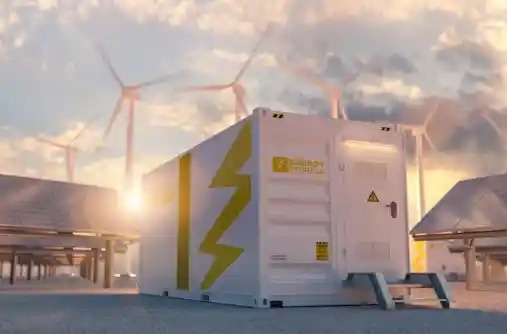Powering the Future with Innovative Energy Storage Solutions
Imagine a world where clean energy powers every home, business, and car. This vision is within reach, but one significant hurdle remains – energy storage. To make renewable energy viable on a large scale, we need efficient, reliable, and innovative ways to store it. In this post, we will explore why energy storage is crucial, the challenges of traditional methods, and the cutting-edge solutions paving the way for a sustainable future.
Exploring the Challenges Faced by Traditional Energy Storage Methods
Traditional energy storage methods, like conventional batteries and fossil fuels, have served us well for decades. However, they come with significant drawbacks. For one, traditional batteries have limited capacity and lifespan, making them less efficient for long-term energy storage. Additionally, fossil fuels are not only finite but also contribute to environmental degradation and climate change.
Another challenge is the intermittency of renewable energy sources like solar and wind. These sources do not produce energy consistently, leading to periods of surplus and deficit. Traditional storage methods struggle to bridge this gap efficiently, leading to wasted energy and higher costs.
Finally, scalability is a major issue. Traditional storage solutions are often bulky and require significant infrastructure, making them impractical for widespread use, particularly in remote or underserved areas.
Overview of Innovative Technologies in Energy Storage
In response to these challenges, researchers and innovators worldwide are developing groundbreaking energy storage technologies. These innovations promise to overcome the limitations of traditional methods, offering more efficient, scalable, and sustainable solutions.
Battery Technology
Batteries have come a long way from the lead-acid versions of the past. Today, lithium-ion batteries are the gold standard, offering higher energy density and longer lifespans. Home battery systems, like those in Boise, are becoming increasingly popular. However, the future holds even more promise with advancements like solid-state batteries and flow batteries, which offer improved safety and efficiency.
Thermal Energy Storage
Thermal energy storage (TES) is another exciting development. TES systems store energy in the form of heat, which can be used later to generate electricity or provide heating and cooling. This method is highly efficient and can be integrated with various renewable energy sources, making it a versatile option.
Hydrogen Fuel Cells
Hydrogen fuel cells represent a revolutionary approach to energy storage. By converting hydrogen into electricity, these cells offer a clean, efficient, and scalable solution. Hydrogen can be produced from renewable sources, stored for long periods, and transported easily, making it an ideal candidate for meeting future energy demands.
In-Depth Look at Specific Innovative Solutions
Let’s take a closer look at some of these innovative energy storage solutions and how they work.
Flow Batteries
Flow batteries store energy in liquid electrolytes contained in external tanks, allowing for easy scalability. The most common types are vanadium redox and zinc-bromine flow batteries. These batteries are particularly well-suited for large-scale energy storage applications, such as grid stabilization and renewable energy integration.
Molten Salt Thermal Energy Storage
Molten salt TES systems store thermal energy in molten salt, which can retain heat for extended periods. This stored heat can then be used to produce electricity or provide heating and cooling. Molten salt TES is already being used in concentrated solar power (CSP) plants, demonstrating its potential for large-scale energy storage.
Hydrogen Production and Storage
Hydrogen fuel cells generate electricity by combining hydrogen with oxygen, producing water as the only byproduct. Hydrogen can be produced through electrolysis, using renewable energy to split water into hydrogen and oxygen. This green hydrogen can then be stored and used as needed, offering a clean and efficient energy storage solution.
Practical Benefits of Adopting Innovative Energy Storage Solutions
The adoption of innovative energy storage solutions offers numerous practical benefits for individuals, businesses, and society as a whole.
Enhanced Grid Stability
Advanced energy storage systems can help stabilize the grid by smoothing out fluctuations in supply and demand. This stability is essential for integrating renewable energy sources and ensuring a reliable power supply.
Cost Savings
While the initial investment in innovative energy storage solutions may be higher, the long-term cost savings can be substantial. Reduced energy waste, lower peak demand charges, and decreased reliance on fossil fuels all contribute to significant financial benefits.
Environmental Impact
By enabling the widespread adoption of renewable energy, innovative storage solutions play a crucial role in reducing greenhouse gas emissions and mitigating climate change. These technologies also minimize the environmental impact associated with traditional energy storage methods, such as mining and waste disposal.
Future Trends and Predictions in Energy Storage
The future of energy storage is bright, with several emerging trends and predictions shaping the industry.
Increased Investment and Research
Investment in energy storage research and development is expected to grow significantly in the coming years. Governments, private companies, and research institutions are all recognizing the importance of advancing energy storage technologies to meet global energy demands.
Integration with Smart Grids
The integration of energy storage solutions with smart grids will enable more efficient and responsive energy management. Smart grids can optimize energy distribution, reduce waste, and enhance grid stability, making them a key component of the future energy landscape.
Decentralized Energy Systems
Decentralized energy systems, such as microgrids and distributed energy resources (DERs), are gaining traction. These systems can operate independently or in conjunction with the main grid, providing increased resilience and flexibility. Energy storage solutions will be integral to the success of decentralized energy systems.
Conclusion
In conclusion, innovative energy storage solutions are essential for unlocking the full potential of renewable energy. By overcoming the limitations of traditional methods, these cutting-edge technologies offer practical benefits, significant cost savings, and a positive environmental impact.






